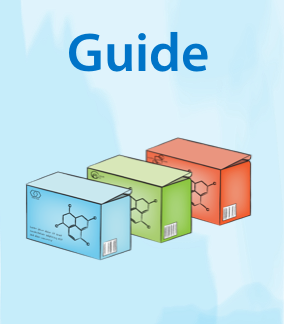naming system
Essentially, there are two categories of medications: a group that treats disease symptoms and a group that treats the underlying disease process.
1. Medications to treat symptoms
- non-steroid anti-inflammatories (NSAIDs)
- pain relievers, like acetaminophen (Tylenol®)
- steroids
- opioids (narcotics)
Glucocorticoids (GC such as steroids like prednisone): steroids are often used as a “bridging therapy” or to treat life-threatening or organ-threatening complications of rheumatoid arthritis, ankylosing spondylitis, psoriatic arthritis, systemic lupus erythematosus, and vasculitis.
Non-steroidal anti-inflammatory drugs (NSAIDs such as aspirin, naproxen and celecoxib): these medications help to reduce the inflammation and pain caused by rheumatoid arthritis, ankylosing spondylitis, psoriatic arthritis and osteoarthritis. Some NSAIDs are available over the counter like ibuprofen (e.g., Motrin or Advil) or naproxen (Aleve) while others require a prescription.
2. Medications to treat the underlying disease
The term “disease-modifying anti-rheumatic drugs” (DMARDs) is used to categorize certain medicines that suppress the disease process that causes the worsening of rheumatoid arthritis, ankylosing spondylitis and psoriatic arthritis, among many other types of inflammatory arthritis. They alter the natural course of the disease. DMARDs suppress the inflammation, slow joint damage, decrease autoantibody levels and have positive effects on long-term functional outcome.
DMARDs now come in all “shapes and sizes” and can be taken by pill, self-injection and infusion (IV). Each DMARD works in a unique way and the decision about which one(s) is best for you is perhaps the most important conversation you can have with your rheumatologist.
In the new naming system for disease-modifying anti-rheumatic drugs (DMARDs), there are classifications for:
Synthetic (or chemical) DMARDs are now divided into:
csDMARDs: Conventional synthetic DMARDs include traditional medications such as methotrexate, sulfasalazine, leflunomide, hydroxychloroquine, gold salts and others.
tsDMARDs: Targeted synthetic DMARDs include only those medications that were specifically developed to target a particular molecular structure such as tofacitinib, baricitinib or apremilast, or agents not focused primarily on rheumatic diseases, such as imatinib or ibrutinib.
Biological DMARDs are now divided into:
boDMARDs: Biological original DMARDs include abatacept, adalimumab, anakinra, anifrolumab, belimumab, bimekizumab, certolizumab, etanercept, golimumab, infliximab, ixekizumab, rituximab secukinumab, tocilizumab, and ustekinumab.
bsDMARDs: Biosimilar DMARDs include:
- adalimumab (Amgevita®), adalimumab (Hadlima®), adalimumab (Hulio®), adalimumab (Hyrimoz®), adalimumab (Idacio®), adalimumab (Abrilada®), adalimumab Simlandi®), and adalimumab (Yuflyma®)
- etanercept (Brenzys®), etanercept (Erelzi®), and etanercept (Rymti®)
- infliximab (Avsola®), infliximab (Inflectra®), infliximab (Remsima®SC), and infliximab (Renflexis®SC)
- rituximab (Riabni®), rituximab (Riximyo®), rituximab (Ruxience®), and rituximab (Truxima®)
- ustekinumab (Jamteki®) and ustekinumab (Wezlana®)

Arthritis Consumer Experts
© 2000-2023

ACE thanks Arthritis Research Canada (ARC) for its scientific review of ACE and JointHealthTM information and programs.

Arthritis Consumer Experts
© 2000-2021

ACE thanks Arthritis Research Canada (ARC) for its scientific review of ACE and JointHealthTM information and programs.


Arthritis Consumer Experts
© 2000-2021

ACE thanks Arthritis Research Canada (ARC) for its scientific review of ACE and JointHealthTM information and programs.











